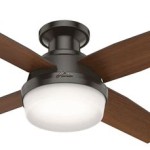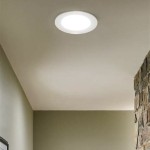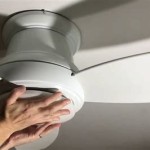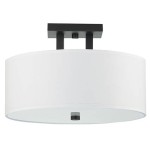Essential Aspects of LED Lights in Ceiling
The proliferation of LED lights in ceiling applications has revolutionized the way we illuminate our homes, offices, and public spaces. LED ceiling lights offer a myriad of advantages, including energy efficiency, durability, and design versatility. However, to fully harness the benefits of LED ceiling lights, it is imperative to consider their essential aspects. ### Energy Efficiency LED (light-emitting diode) lights are renowned for their exceptional energy efficiency. They consume significantly less energy compared to traditional lighting sources, such as incandescent bulbs and fluorescent tubes. This energy-efficient operation not only reduces electricity costs but also contributes to environmental sustainability. ### Durability LED ceiling lights boast an extended lifespan, typically lasting up to 50,000 hours or more. This exceptional durability eliminates the need for frequent replacements, reducing maintenance costs and minimizing disruptions to operations. ### Design Versatility LED ceiling lights are available in a wide range of designs, styles, and sizes. This versatility allows them to complement any interior décor, whether it be modern, traditional, or industrial. They can be recessed, surface-mounted, or suspended, providing flexibility in placement and aesthetics. ### Color Temperature and Dimming LED ceiling lights offer a variety of color temperatures, from warm white to cool white. This versatility allows for customization of lighting ambiance to suit specific needs. Additionally, many LED ceiling lights come equipped with dimming capabilities, enabling the adjustment of light intensity to create the desired atmosphere. ### Beam Angle and Distribution The beam angle and distribution of LED ceiling lights play a crucial role in determining the intended lighting effect. Narrow beams provide focused illumination, while wide beams distribute light more broadly. Understanding the beam characteristics is essential for achieving optimal lighting for various areas and applications. ### Color Rendering Index (CRI) The CRI of a light source indicates its ability to accurately render colors. A high CRI is desirable, especially in areas where color fidelity is important, such as art galleries, retail stores, and healthcare facilities. ### Mounting and Installation Proper mounting and installation are essential for the optimal performance and longevity of LED ceiling lights. The type of mounting system, the power source, and the accessibility for maintenance should be carefully considered during the installation process. ### Cost and Return on Investment While the initial cost of LED ceiling lights may be higher than traditional lighting, their energy efficiency and durability result in significant long-term savings. The extended lifespan and reduced maintenance costs provide a substantial return on investment over the lifetime of the lights. ### Conclusion The essential aspects of LED lights in ceiling applications, such as energy efficiency, durability, design versatility, and color temperature, must be thoroughly considered to maximize their benefits. By understanding these crucial factors, architects, designers, and homeowners can make informed decisions and optimize the lighting solution for their specific needs.
How To Position Your Led Strip Lights

Tray Ceiling Lights Led Channel Glow12 Up For Best S

Led Ceiling Lights Using Plaster In Profile Build Strips Into And Walls

Luminea Led Line For Sensory Rooms

Sldf 12 W Led Ceiling Lights Cool Daylight Flourescent

6 Steps How To Install Led Strip Lights On Ceiling

Led Ceiling Lights For Kitchen Bedroom Living Room Slb Blogs

Brightside Pink Ombre Led Indoor Ceiling Lights Aa Battery Powered 3 5ft W X 6ft H Com

Recessed Lighting Guide Lowe S

How To Choose Led Lights For Diffe Rooms
Related Posts








